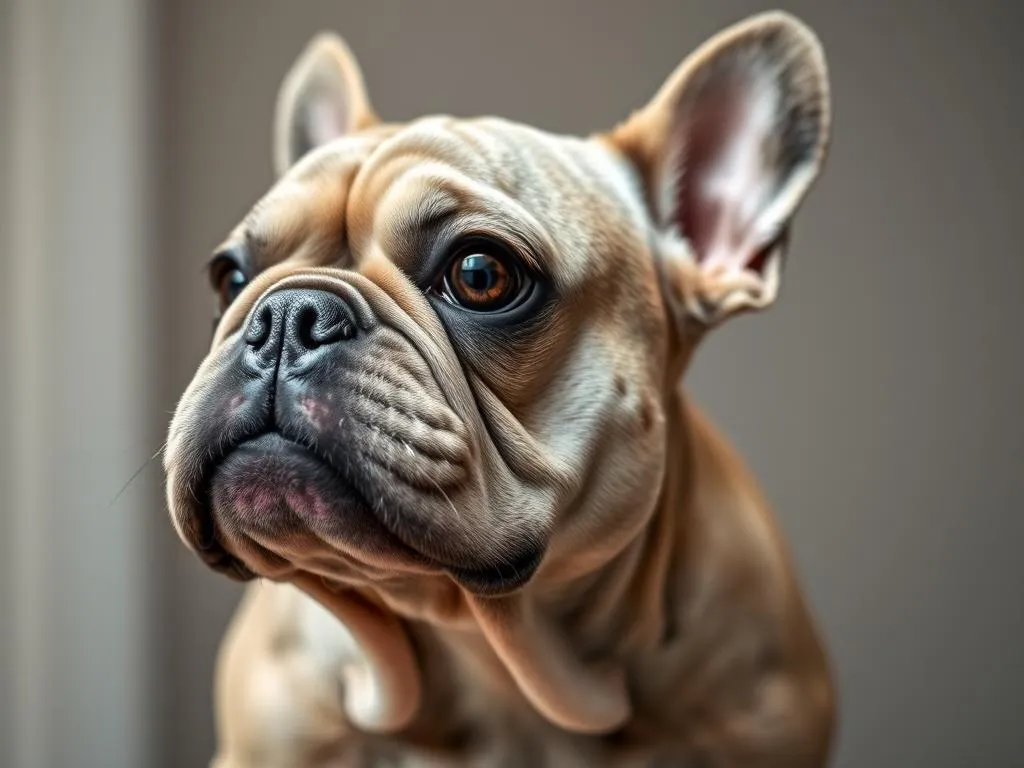
Introduction
Dog breeds are a fascinating aspect of canine companionship, each possessing unique characteristics that cater to various lifestyles and preferences. Among these breeds, the Platinum French Bulldog stands out as a particularly sought-after variety, captivating dog lovers with its striking appearance and delightful temperament.
In this comprehensive guide, we will delve into the intricacies of the Platinum French Bulldog, exploring its characteristics, care needs, health considerations, and more. Whether you’re a potential owner or simply an admirer of this breed, the information provided will equip you with valuable insights into what makes the Platinum French Bulldog a unique companion.
Understanding Dog Breeds
Definition of Dog Breeds
A dog breed is a specific group of domestic dogs that share similar physical characteristics, behaviors, and genetics. These traits often arise from selective breeding practices aimed at enhancing desirable qualities, such as size, temperament, or functionality. Understanding breed characteristics is crucial for prospective pet owners, as they help inform decisions based on lifestyle compatibility.
Different Categories of Dog Breeds
Dog breeds can be categorized into several groups, each serving different purposes. Some of the main categories include:
-
Working Breeds: These dogs are bred to perform specific tasks, such as pulling sleds, guarding property, or assisting police. Examples include the Siberian Husky and the Rottweiler.
-
Sporting Breeds: Designed for hunting and retrieving, sporting breeds are active and require ample exercise. Breeds like the Labrador Retriever and Golden Retriever fall into this category.
-
Toy Breeds: Small in size and often adored for their companionship, toy breeds like the Chihuahua and Pomeranian are excellent for apartment living.
-
Terriers: Known for their feisty nature and energetic disposition, terriers were originally bred for hunting vermin. The Jack Russell Terrier is a prime example.
-
Hounds: Hounds are typically used for hunting due to their keen sense of smell and stamina. Breeds such as the Beagle and Greyhound belong to this group.
-
Non-sporting Breeds: This diverse group includes breeds that don’t fit neatly into the other categories, such as the Bulldog and the Dalmatian.
Introduction to the French Bulldog
History of the French Bulldog
The French Bulldog has a rich history that dates back to the 1800s in England, where it was developed as a miniature version of the English Bulldog. As lace workers migrated to France, they brought their small Bulldogs with them, leading to the breed’s development in Paris. Over time, the French Bulldog gained popularity among the upper class and was even recognized by the American Kennel Club in 1898.
Characteristics of the French Bulldog
The French Bulldog is characterized by its compact size, muscular build, and distinctive bat-like ears. Typically weighing between 16 to 28 pounds and standing about 11 to 12 inches tall, this breed is known for its affectionate nature and playful personality. French Bulldogs are generally sociable, making them great companions for families and singles alike.
The Platinum French Bulldog
What is a Platinum French Bulldog?
The Platinum French Bulldog is a rare and unique variant of the French Bulldog, distinguished by its strikingly light coat color. This breed features a pale, almost silvery coat that can appear cream or fawn under certain lighting conditions. The color is a result of a specific genetic mutation and is often sought after for its beauty, setting it apart from the more common brindle, pied, and solid color French Bulldogs.
Appearance and Physical Characteristics
The Platinum French Bulldog boasts an eye-catching appearance. Here are some of its notable physical characteristics:
-
Coat Color: The defining feature is its platinum or silvery coat, often with minimal to no markings. This hue is less common than other colors in the breed, which adds to its allure.
-
Size and Weight: Similar to standard French Bulldogs, Platinum variants typically weigh between 16 to 28 pounds and stand 11 to 12 inches tall at the shoulder.
-
Unique Facial Features: With a short, squished face and prominent forehead, the Platinum French Bulldog exhibits the classic brachycephalic structure of the breed, giving it an adorable and expressive appearance.
Temperament and Behavior
The Platinum French Bulldog shares the friendly and affectionate temperament of its counterparts. These dogs are known for their playful, sociable nature, making them excellent family pets. They tend to get along well with children and other animals, often forming deep bonds with their owners. Their loving disposition ensures they thrive on human companionship, making them less suited for long periods of solitude.
Care and Maintenance
Nutrition Requirements
Proper nutrition is essential for the health and well-being of your Platinum French Bulldog. A balanced diet featuring high-quality dog food tailored to small breeds is recommended. Look for options that list real meat as the primary ingredient, and avoid fillers like corn and soy. Always consult your veterinarian for personalized dietary recommendations.
Grooming Needs
The grooming requirements for a Platinum French Bulldog are relatively simple. Their short coat does not require frequent brushing, but regular grooming can help reduce shedding and maintain coat health. Bathing should be done as needed, typically every few months or when they get particularly dirty. Pay special attention to their facial folds, ensuring they are clean and dry to prevent skin infections.
Exercise and Activity
Despite their small size, Platinum French Bulldogs need regular exercise to stay healthy and happy. Daily walks, playtime in a secure yard, or indoor games can provide adequate physical activity. Mental stimulation is equally important; consider puzzle toys and training sessions to keep their minds engaged.
Health Considerations
Like other French Bulldogs, the Platinum French Bulldog is prone to certain health issues due to its brachycephalic structure. Common concerns include:
-
Respiratory Problems: Brachycephalic breeds often experience breathing difficulties, especially in hot or humid conditions.
-
Hip Dysplasia: This genetic condition can lead to arthritis and joint problems.
-
Skin Issues: Their skin folds can trap moisture and debris, leading to infections if not properly maintained.
Regular veterinary check-ups and preventive care are essential to ensure a long, healthy life for your Platinum French Bulldog.
Training the Platinum French Bulldog
Basic Obedience Training
Starting training early is crucial for Platinum French Bulldogs. Socialization and basic obedience commands can help establish a solid foundation for good behavior. Positive reinforcement techniques, such as treats and praise, work well with this breed. Consistency and patience are key, as these dogs can sometimes exhibit stubbornness.
Advanced Training and Tricks
Once basic obedience is mastered, consider introducing advanced training and tricks. Teaching your Platinum French Bulldog fun commands not only entertains them but also strengthens your bond. Activities like agility training or obedience competitions can provide mental and physical challenges that enrich their lives.
Finding a Platinum French Bulldog
Where to Buy or Adopt
When looking for a Platinum French Bulldog, it’s essential to choose a reputable source. Consider adopting from shelters or rescue organizations that specialize in French Bulldogs. If you prefer a breeder, look for one who prioritizes health testing and ethical breeding practices. Ask for references and visit the facility to ensure the puppies are raised in a healthy environment.
Cost Considerations
The price of a Platinum French Bulldog can vary widely based on factors such as breeder reputation, lineage, and location. On average, you can expect to pay between $3,000 to $8,000 for a Platinum variant. Keep in mind that responsible breeders may have higher prices due to their commitment to quality and health.
Questions to Ask Before Purchase
Before bringing a Platinum French Bulldog home, it’s crucial to ask the breeder or shelter the following questions:
- What health tests have been conducted on the puppy’s parents?
- Can you provide references from previous buyers?
- What is the puppy’s socialization history?
- What kind of support do you offer after purchase?
Gathering this information can help ensure you are making a well-informed decision.
Conclusion
The Platinum French Bulldog is a captivating breed that offers both companionship and charm. Understanding the intricacies of this unique variety, from its history and characteristics to care and training needs, is essential for any potential owner. These dogs thrive on love and attention, making them a wonderful addition to any household.
Before committing to a Platinum French Bulldog, it’s vital to consider the responsibilities involved in ownership. With proper care, training, and love, a Platinum French Bulldog can be a loyal and joyful companion for many years to come.
FAQs
What is the lifespan of a Platinum French Bulldog?
The average lifespan of a Platinum French Bulldog is typically between 10 to 12 years, depending on genetics and care.
Are Platinum French Bulldogs healthy?
While they can be prone to certain health issues common in French Bulldogs, responsible breeding practices and regular veterinary care can enhance their overall health.
How much exercise does a Platinum French Bulldog need?
A daily routine of moderate exercise, such as short walks and playtime, is sufficient to keep a Platinum French Bulldog healthy and happy.
Can Platinum French Bulldogs live in apartments?
Yes, Platinum French Bulldogs are well-suited for apartment living, provided they receive adequate exercise and mental stimulation.
Do Platinum French Bulldogs shed?
Like other French Bulldogs, Platinum versions do shed. Regular grooming can help manage shedding and keep their coat healthy.









